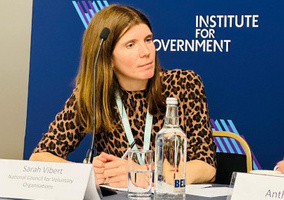Changes to immigration rules governing employing skilled workers pose major challenges to faith-based charities around recruitment, budgeting, compliance and long-term planning, sector organisations have warned.
A recent briefing from legal firm Bates Wells says modifications to the regulations in April have “reshaped the landscape for employers” with serious implications for faith charities.
Rising salary thresholds for sponsoring skilled workers mean such organisations “will find it increasingly difficult to sponsor migrants”, making staff shortages in crucial roles a real risk, the report warns.
The skilled worker category, for which many faith-based organisations hold a sponsor licence in addition to ministers of religion, provides “flexibility to have a diverse workforce by employing migrants in key roles that aren’t solely pastoral”, the report adds.
“Positions traditionally filled by overseas workers, particularly in smaller congregations or community-focused organisations, may now fall below the new salary thresholds, [impacting] the hiring process.”
Hikes to Home Office salary thresholds
Besides increases to the base skilled-worker threshold – from £26,200 to £38,700 a year – there have also been rises in so-called “going rates” for individual occupations, from the 25th to 50th centile of average annual earnings.
This has led to some dramatic hikes, the Bates Wells briefing paper says, for roles such as financial managers and directors, which have seen annual salary thresholds rise from £42,800 to £70,000, based on a 37-hour week.
Such sums could be “contentious and difficult to justify” for smaller charities, the report says.
Other roles such as youth and community workers have seen salary thresholds rise from just under £25,000 to just under £31,000.
Meeting the thresholds, set by the Home Office, accounts for 20 of the 70 points applicants must accumulate under the UK immigration system in order to qualify for a skilled-worker visa.
“The most immediate consequence of [the] changes is the potential difficulty in recruiting skilled international workers,” the report says. “You may find your traditional funding models do not allow for the higher salaries now required.”
It also warns of knock-on effects, including the new rates being out of kilter with what settled workers are already being paid, potentially leading to action under employment laws.
MCF: ‘Policy could worsen financial strains’
Fadi Itani, chief executive of the Muslim Charities Forum, said the increase to salary thresholds for migrant sponsorship “is set to pose significant challenges for faith-based organisations, especially in positions that have traditionally been filled by international workers”.
“This policy could worsen financial strains, recruitment issues, and operational hurdles, compelling these organisations to manage an already difficult situation with even more caution,” he said.
“Importantly, the current shortage of skilled workers in the UK suggests that these changes could adversely affect the provision of essential services that depend on skilled professionals, thereby worsening inequalities for some of the most vulnerable communities.
“While the intention behind the threshold may be to improve the system and ensure fair treatment of workers – given instances of exploitation – it’s clear that a uniform approach doesn’t suit everyone.
“Smaller organisations will find it particularly tough and will need exemptions that reflect their financial circumstances.
“Moreover, these changes unintentionally undermine the government's goal to 'stop the boats'. They serve as yet another instance of limiting legal pathways for migration, which may drive individuals toward irregular and unsafe routes, further intensifying the small boats crisis.”
‘Difficult decisions’ for faith-based charities
Organisations may now have to reassess their financial strategies, and make “difficult decisions” over which posts to prioritise for sponsorship or even whether to scale back services, Bates Wells’ report says.
It emphasises the importance of compliance with the new regime, to avoid any negative future impacts on sponsor licences.
“You should establish clear procedures for monitoring compliance, including regular training for staff involved in hiring and sponsorship processes,” it recommends.
Further ahead, faith-based charities may need to pursue different long-term workforce development pathways, including training local volunteers or staff to fulfil roles now covered by international workers, it warns.
People who have held continuous skilled-worker permissions since before April 2024 are shielded from the new going rates, but will still face an inflation-based rise to the general salary threshold, to £29,000.
Home Office: Legal migration ‘must be controlled’
A spokesperson for the Home Office said the government values the contribution legal migration makes to our country, but that it “must be controlled and delivered through a fair system”.
In July, home secretary Yvette Cooper said her government supported the previous administration’s plans to tackle an “over-reliance on international recruitment” including through the threshold rises.
She also commissioned the Migration Advisory Committee to review the minimum income requirement for family visas, currently frozen at £29,000.
Related articles












